In a world increasingly drawn towards natural wellness, plants offer a treasure trove of remedies that have been used for centuries. These natural solutions harness the potent properties of plants to address a myriad of health concerns, from inflammation and anxiety to immune support and digestive health. Each plant comes with its own unique set of benefits, backed by both traditional use and modern scientific research. This exploration delves into some of the most celebrated plants known for their healing properties, offering insights into how they can be incorporated into daily life for improved well-being.
Contents
Turmeric

Turmeric, a golden spice renowned for its anti-inflammatory and antioxidant properties, holds a place of honor in the realm of natural remedies. Curcumin, the active compound in turmeric, is responsible for its vibrant color and a host of health benefits. Research indicates that curcumin can significantly reduce markers of inflammation in the body, making turmeric a popular choice for managing conditions like arthritis and other inflammatory disorders. Additionally, its antioxidant action helps combat oxidative stress, protecting cells from damage and contributing to overall health.
The versatility of turmeric extends beyond its medicinal properties, finding its way into culinary applications that promote health and wellness. Incorporating turmeric into the diet is not only a way to enhance the flavor of foods but also an effective strategy to reap its therapeutic benefits. Whether added to smoothies, teas, or curries, turmeric’s distinctive flavor and health-enhancing properties make it a valuable addition to any meal. Its role in improving digestion, enhancing immune function, and potentially reducing the risk of chronic diseases further underscores the importance of this powerful spice in a holistic health approach.
Lavender
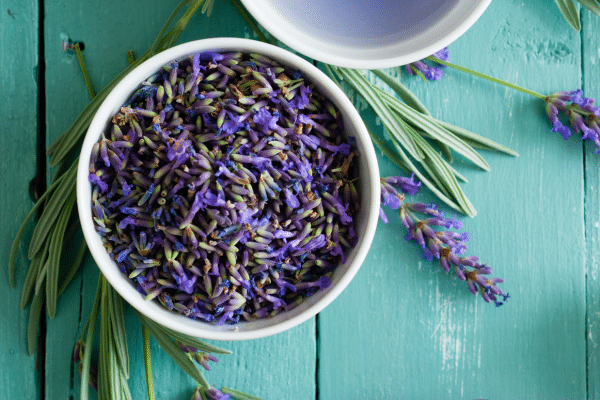
Lavender, with its soothing aroma and calming properties, is a cornerstone in the world of natural remedies for stress and anxiety. The essential oil derived from lavender flowers is particularly effective in promoting relaxation and improving sleep quality. Studies have demonstrated that inhaling lavender scent can lower heart rate and blood pressure, creating a sense of calm and facilitating a restful night’s sleep. This makes lavender an excellent choice for those seeking natural ways to combat insomnia and stress-related conditions.
Beyond its calming effects, lavender is also celebrated for its ability to heal skin irritations and minor wounds. Its antiseptic and anti-inflammatory properties make it an ideal natural treatment for cuts, burns, and insect bites, promoting faster healing and reducing the risk of infection. Applying lavender oil to affected areas not only soothes pain but also aids in skin regeneration, showcasing the plant’s multifaceted role in natural health and skincare. Lavender’s gentle yet effective healing capabilities make it a must-have in any home remedy kit.
Garlic
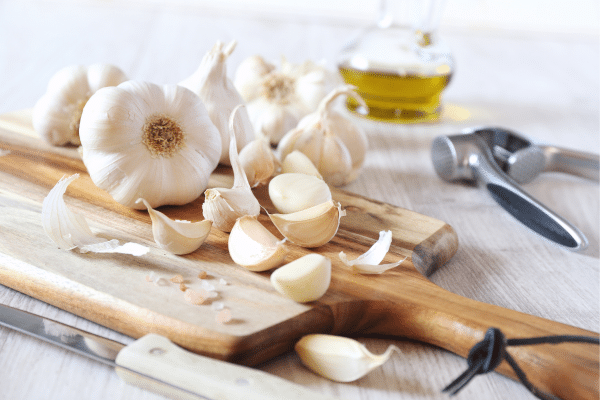
Garlic, a staple in kitchens around the world, is revered not only for its bold flavor but also for its powerful health benefits. This pungent herb is packed with compounds that can boost the immune system, making it an effective natural remedy for preventing and fighting off colds and other infections. Allicin, the main active compound in garlic, has been shown to exhibit antibacterial, antiviral, and antifungal properties, offering a broad spectrum of protection against pathogens. Regular consumption of garlic has been linked to enhanced immune function, highlighting its role in maintaining health and warding off illness.
Additionally, garlic’s impact on cardiovascular health cannot be overstated. Research suggests that it can help lower blood pressure and cholesterol levels, reducing the risk of heart disease. The compounds in garlic improve circulatory health by relaxing blood vessels and preventing the formation of arterial plaques. This, in turn, facilitates better blood flow and reduces strain on the heart. By incorporating garlic into the diet, individuals can take a proactive step towards supporting heart health and preventing cardiovascular conditions, making it a key component of a heart-healthy lifestyle.
Echinacea
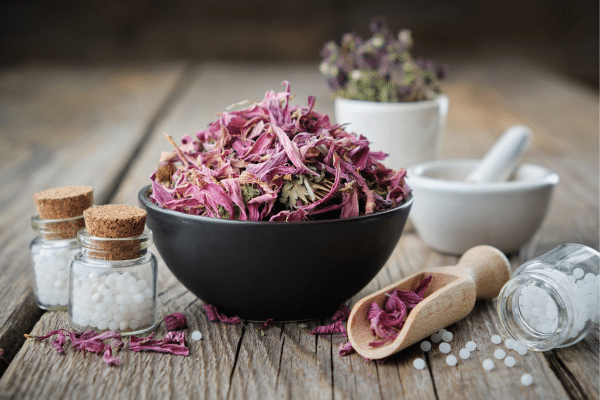
Echinacea is widely recognized for its role in enhancing the immune system and reducing the duration and severity of colds and flu. This plant’s immune-boosting properties stem from its ability to increase white blood cell production, which plays a crucial role in fighting off infections. Numerous studies have supported the effectiveness of echinacea in preventing colds and accelerating recovery, making it a go-to remedy during cold and flu season. Its anti-inflammatory effects also help alleviate symptoms, providing relief from sore throats, coughs, and fever associated with viral infections.
In addition to its immune-supportive benefits, echinacea is also used to combat skin conditions due to its anti-inflammatory and antimicrobial properties. It is effective in treating eczema, psoriasis, and other inflammatory skin disorders, promoting healing and reducing redness and irritation. Applying echinacea topically can soothe the skin, while oral consumption supports skin health from the inside out. This dual approach underscores the versatility of echinacea as a natural remedy, offering benefits that extend beyond its well-known immune-enhancing effects.
Ginger

Ginger is celebrated for its potent anti-nausea and digestive health benefits. Its active compounds, such as gingerol, work to soothe the digestive tract, effectively relieving symptoms of nausea, vomiting, and indigestion. This makes ginger an invaluable remedy for those experiencing motion sickness, morning sickness during pregnancy, or side effects from chemotherapy. The warming effect of ginger also stimulates digestion and can help to reduce bloating and gas, enhancing overall digestive comfort.
Beyond its gastrointestinal benefits, ginger exhibits strong anti-inflammatory and antioxidant properties, making it beneficial in the management of pain and chronic diseases. Regular consumption of ginger has been associated with reduced pain levels in conditions like osteoarthritis, as well as a lower risk of certain chronic diseases due to its ability to neutralize harmful free radicals. By incorporating ginger into the diet through teas, soups, or as a spice in cooking, individuals can tap into its wide range of health benefits, from improved digestive health to enhanced disease prevention.
Peppermint
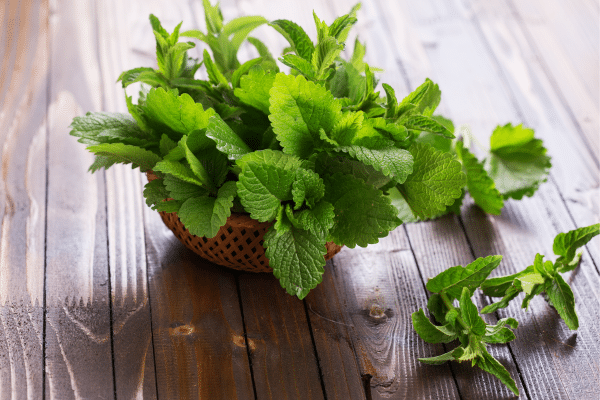
Peppermint is renowned for its refreshing flavor and its ability to relieve digestive issues. The natural oils found in peppermint, particularly menthol, relax the muscles of the digestive tract, easing symptoms of irritable bowel syndrome (IBS), including bloating, gas, and spasms. This herb’s antispasmodic effect has been supported by research, showing significant improvement in digestive comfort among those who regularly consume peppermint oil capsules. Additionally, peppermint tea is a popular and soothing remedy for indigestion and abdominal pain, offering a gentle and natural approach to digestive health.
The benefits of peppermint extend to respiratory health, where its menthol component acts as a natural decongestant. Inhaling peppermint aroma can clear nasal passages and relieve sinus congestion, making it a helpful remedy during cold and flu season. Its cooling effect also soothes sore throats and acts as an expectorant, aiding in the removal of mucus. Whether used in aromatherapy, consumed as tea, or applied topically through oils, peppermint’s versatile healing properties make it a staple in natural health practices for both digestive and respiratory wellness.
Chamomile
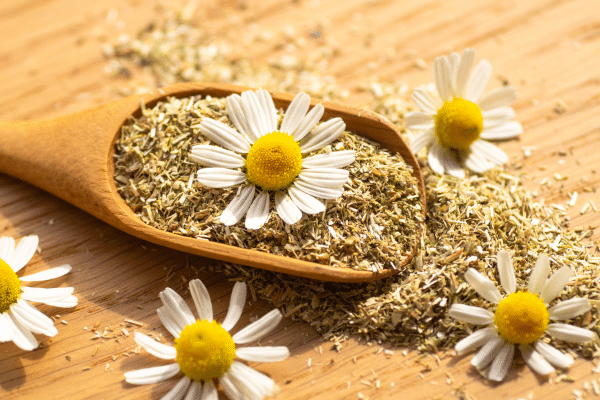
Chamomile is best known for its calming and sleep-inducing effects, making it a popular herbal remedy for those struggling with insomnia or stress. The active components in chamomile, such as apigenin, bind to specific receptors in the brain that decrease anxiety and initiate sleep. Drinking chamomile tea before bedtime can improve sleep quality, helping individuals fall asleep faster and experience deeper, more restorative sleep. This gentle herb serves as a natural alternative to pharmaceutical sleep aids, offering a holistic approach to improving sleep and reducing anxiety without the risk of dependency.
Apart from its soothing effects on the nervous system, chamomile also possesses anti-inflammatory and antioxidant properties that benefit skin health. It can be used topically to reduce inflammation and soothe skin conditions such as eczema, acne, and rashes. Chamomile’s healing properties accelerate wound healing, diminish scars, and provide a calming effect on irritated skin. Incorporating chamomile into skincare routines, either through topical application or by adding it to baths, can enhance skin health and promote a natural glow.
The Bottom Line
Nature provides an abundance of remedies that offer gentle, effective solutions to a wide range of health issues. From the anti-inflammatory powers of turmeric and ginger to the soothing effects of lavender and chamomile, these plants have been relied upon for centuries for their medicinal properties. Incorporating these natural remedies into daily life can support overall well-being, offering a holistic approach to health that emphasizes prevention and natural healing. Embracing the gifts of nature allows for a deeper connection to the earth and its healing capabilities, guiding individuals towards a path of wellness and harmony.


